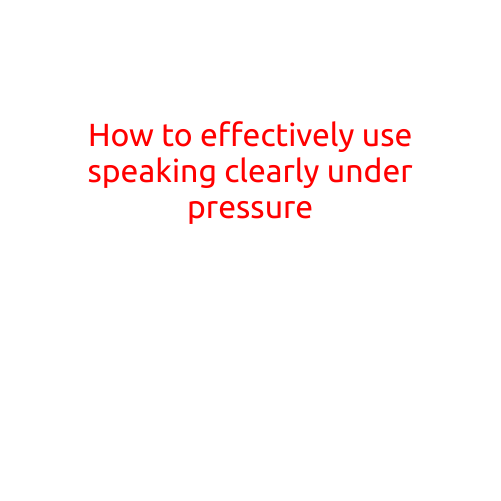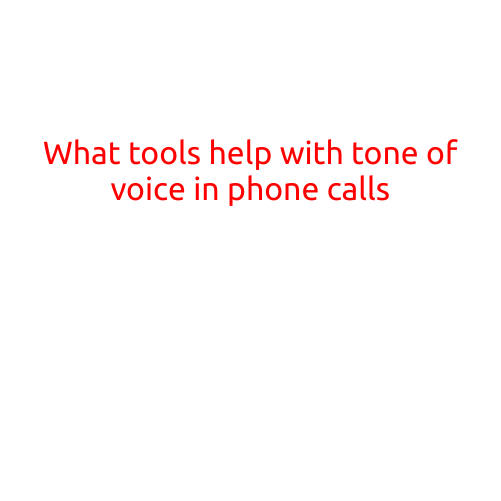
How to Effectively Use Speaking Clearly Under Pressure
Are you someone who tends to get tongue-tied or struggle to articulate your thoughts when speaking under pressure? You’re not alone! Many of us face this challenge, whether it’s in a job interview, public speaking engagement, or even everyday conversations. In this article, we’ll explore the importance of clear communication and provide practical tips on how to speak clearly under pressure.
Why Clear Communication Matters
Effective communication is crucial in any situation. When you communicate clearly, you convey your message accurately, build trust, and establish credibility. Clear communication also helps to avoid misunderstandings, reduces stress, and leads to stronger relationships. In today’s fast-paced and rapidly changing world, being able to communicate clearly under pressure is a valuable skill that can set you apart from others.
The Consequences of Poor Communication
On the other hand, poor communication can have severe consequences. When we struggle to articulate our thoughts or speak unclearly, we may:
- Be misunderstood or misinterpreted
- Lose credibility or trust
- Miss important opportunities or falter in negotiations
- Feel anxious, stressed, or embarrassed
- Struggle to achieve our goals or build relationships
Practical Tips to Speak Clearly Under Pressure
So, how can you improve your communication skills and speak clearly under pressure? Here are some practical tips to help you:
- Prepare Thoroughly
Prepare for any situation by researching, planning, and rehearsing your thoughts. This will help you feel more confident and calm.
- Focus on Your Message
Instead of worrying about how you’re speaking, focus on the message you want to convey. Think about the key points you want to make and organize your thoughts accordingly.
- Use Simple Language
Avoid using jargon or complex terminology that can confuse others. Instead, use simple, clear language that is easy to understand.
- Speak Slowly and Clearly
Speak at a moderate pace and enunciate clearly. Avoid rushing or mumbling, which can make it difficult for others to understand you.
- Practice Deep Breathing
Take a few deep breaths before speaking to calm your nerves and reduce stress. This will help you relax and focus your thoughts.
- Use Positive Self-Talk
Encourage yourself with positive affirmations before and during the conversation. This can help boost your confidence and reduce anxiety.
- Listen Actively
Active listening is just as important as clear communication. Listen carefully to others, ask clarifying questions, and respond thoughtfully.
- Record Yourself
Record yourself speaking and listen back to identify areas for improvement. This can help you develop greater awareness of your communication style and make adjustments accordingly.
Conclusion
Speaking clearly under pressure requires practice, patience, and persistence. By following these practical tips, you can improve your communication skills and effectively convey your message with confidence and clarity. Remember that clear communication is a skill that can be developed over time with practice and dedication.
So, take a deep breath, speak up, and start communicating clearly under pressure today!





